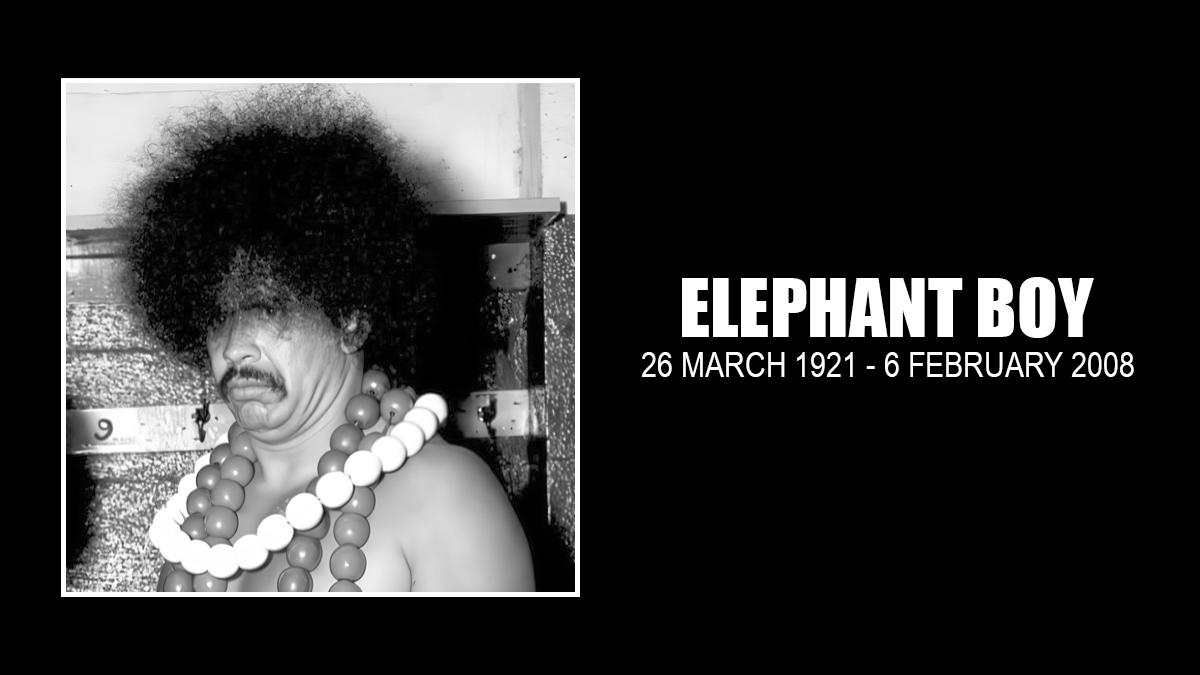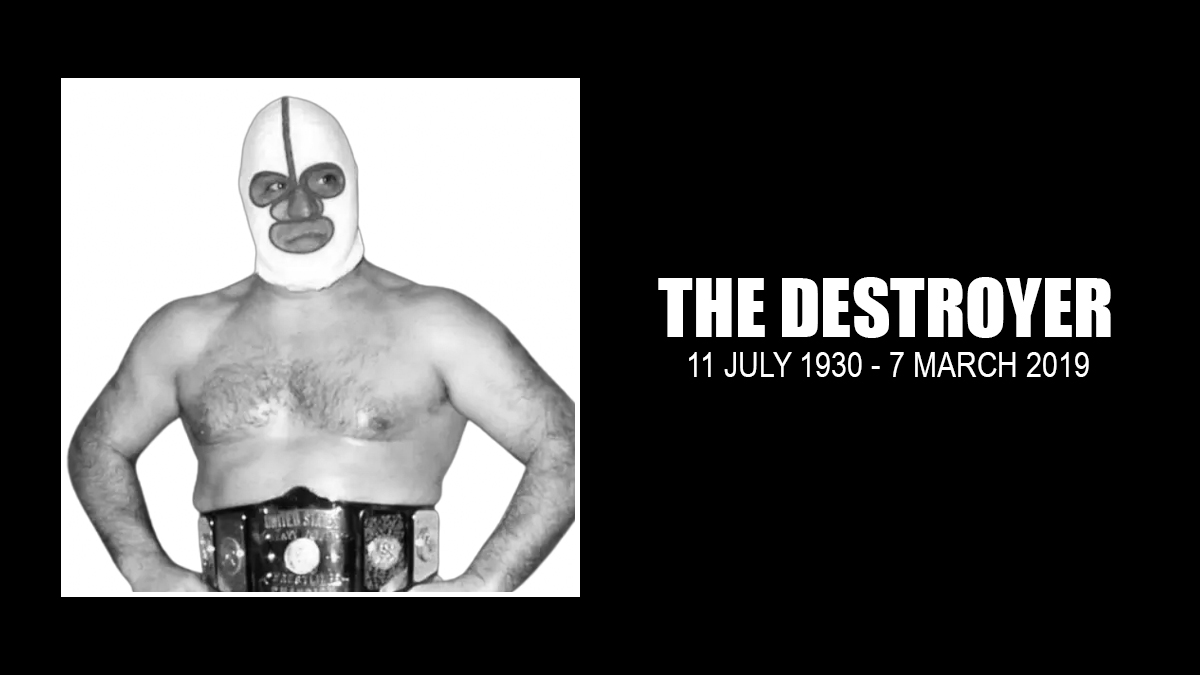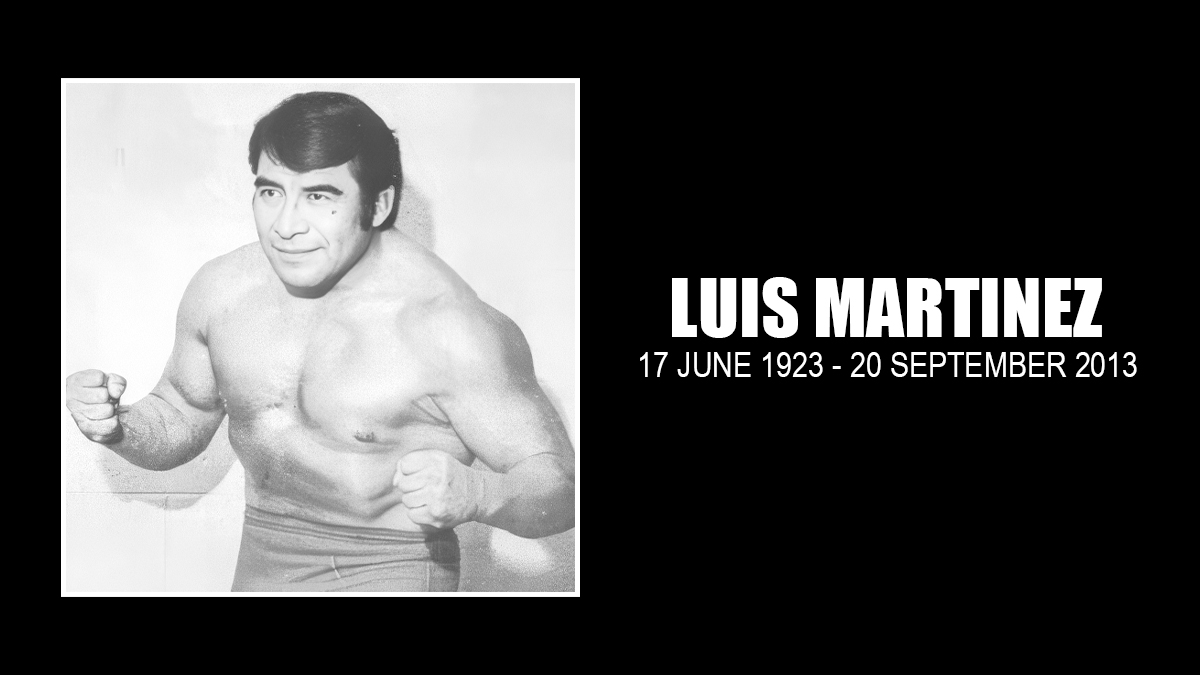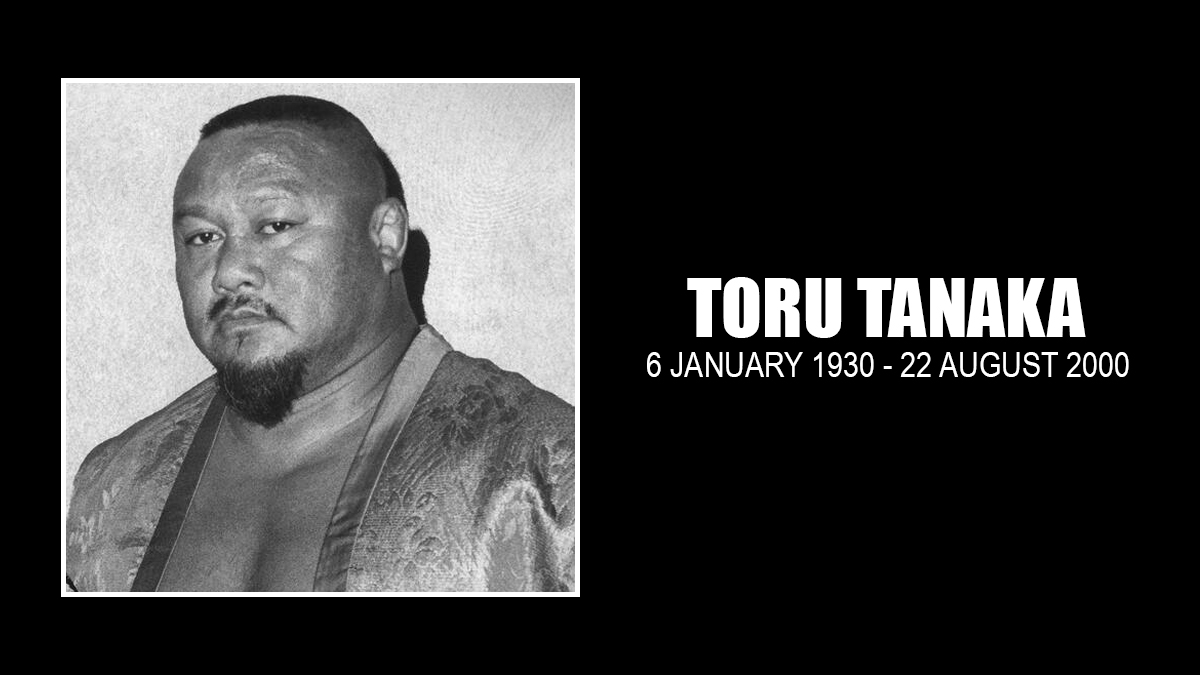In the rich newspaper vernacular of the 1950s, few pro wrestlers inspired writers better than “The Elephant Boy” Tony Olivas. With his wild, bushy hair, and dark skin, Olivas, who died in early February, hardly had to do a thing to be promoted.
Consider these beauties:
- “Elephant Boy, with the help of Moolah, won the first fall from Carlos Mendoza in seven minutes. The bushy haired ‘South African’ used various choke holds to soften up his opponent and Moolah administered a few blows and held the Mexican on occasion while Elephant Boy pummeled him.” – Coshocton, Ohio, May 27, 1952
- “The robe he wears is one of his most prized possessions. In fact, promoters who book the Elephant Boy report that the robe now carries its own insurance policy in the amount of $5,000.” – Wrestling U.S.A., July 1954
- “The copper skinned trapper of the mammoth African pachyderms.” – Chillicothe Constitution Tribune (Missouri), May 21, 1957
- “Little is known about him except that he is one of the strongest men in the ring. His complexion is dark because of his long exposure to the sun’s hot rays. His hair completely covers his eyes. It is that long and very wiry and curly.” – The Progress-Index, Jan. 1, 1958, Petersburg, Va.
- “Then there was Elephant Boy, a wild looking cat whose manager claimed he had been raised by a herd of elephants. Naturally he didn’t speak any English. Just elephant talk. Very mean sort who always pulled dirty elephant tricks on his opponents.” – San Antonio Express/News, June 10, 1972
So it was no surprise to find Olivas back in the news again, after he became an ordained priest at St. Thomas Aquinas Church in his native Ojai, California at the young age of 76. The thought of such a wildman turned clergyman was irresistible.
“I think that the Lord was always willing to grab me, but I was running a little ahead of him, or wasn’t quite ready,” Olivas said in an Associated Press article in 1997. “But he finally got a hold of me and now he says, ‘You can’t get away.'”
Unfortunately, the news of his passing at the age of 86 on February 6, 2008, got little press.
Having suffered a heart attack in 2002, Olivas had slowed down, but was active at the parish, which serves upwards of 5,000 people. “I do my duty. We have daily mass every day, and Sunday,” the associate pastor explained to this writer in 2004 at the Cauliflower Alley Club reunion in Las Vegas. Previously to his time as a pastor, he had been a permanent deacon at the parish for nearly 20 years.
William Victor Olivas was born on March 26, 1921 in Ventura County, California to William and Solena Olivas, and raised around Ojai. According to his obituary at the The Tidings website, his family had lived in Ventura since mission days, descendants of Spanish army captain Rimundo Olivas, who built the historic Olivas Adobe, a Ventura landmark. As a youth, Olivas attended Villanova Preparatory School and Los Angeles College, where he planned to study languages before entering the seminary. When the Japanese attacked Pearl Harbor in December 1941, Olivas joined the army.
While stationed in England, he befriended another solider who moonlighted as a wrestler, and had his first match there. “One night, his opponent didn’t show up and he said, ‘Come on, if I don’t wrestle I’m not going to get my 70 pounds,” he recalled in a 1997 newspaper article.
During the war, Olivas was a part of the D-Day invasion at Omaha Beach, as a part of the combat engineers, and stayed with the U.S. Army as it marched through France and Germany as an assistant to the front-line Roman Catholic chaplain.
Upon returning to American after the war concluded, Olivas considered re-entering the seminary, but instead began dabbling in the growing sport of professional wrestling in 1947 and 1948, working initially for California promoter Hugh Nichols as a referee and as a wrestler, Billy Olivas.
It was Nichols who dispatched Olivas to Chicago, which was the centre of the grappling game thanks to the power of the DuMont television network’s wrestling show, taped at the Marigold Arena. By 1951, with his hair considerably longer than his post-army days, Olivas had fallen under the wiles of mat impressionaro Jack Pfeffer, who came up with the whole Elephant Boy gimmick, modeled loosely on film star Sabu Dastagir (1937’s Elephant Boy, The Jungle Book, The Thief of Bagdad).
As an independent booker of talent, Pfeffer sent his charges wherever they were needed. In Chicago, promoter Fred Kohler wrote to Pfeffer, in a letter dated November 28, 1951: “Will you have Tony write a letter to the State Athletic Commission, 160 N. La Salle Street, Chicago, Illinois, asking them to change his name from Tony Olivas to Tony (Elephant Boy) Sabu. I think this will help us, and in the near future figure on sending him in here for a week so that I can get him straightened out with the commission. I won’t need Moolah.”
Ah yes, Moolah. Before she was ever “Fabulous,” Lillian Ellison was Slave Girl Moolah — another Pfeffer idea — dressed provocatively (for the time) in a jungle suit, seconding the Elephant Boy at all times.
The book, A Pictorial History of Wrestling, described their act: “The Elephant Boy would enter the ring dressed as an Indian prince, and Moolah would follow as his second, clad as a member of his harem and known as the Slave Girl. The big gimmick of this combination lay in a cloak worn by the Elephant Boy and cared for between rounds by the Slave Girl. The cloak, it was claimed, had belonged to Catherine the Great, Empress of Russia, and was said to be insured for a million dollars. Publicity always helped to build gates.”
Olivas laughed at the memories in 2002, reunited with Moolah at the Cauliflower Alley Club reunion. “Wrestling was very good to me. I think that if it hadn’t have been for Jack Pfeffer, I might have been — is she in the room — I might have been married to Moolah,” he laughed. “At first, Jack watched us very, very closely. In fact, he always had a room just down from us in the hotels.” Olivas would sneak down to Moolah’s room and Pfeffer would knock on the door. “He’d say, ‘Tony, Tony, I know you’ve gotta the Moolah in there. Come out of there. No lovey-dovey in here.’”
“The Elephant Boy was a sweetheart. My, did we have some fun on the road. Much of it was at poor old Jack Pfeffer’s expense,” wrote Moolah in her autobiography.
There is a small notebook and filed in the Pfeffer Collection at the University of Notre Dame, which records the money made by Olivas and Elison in January 1952, working together or separately. In a big city, like Denver, he’d take in $150 and Moolah $40, down to Greeley, where it was $30 and $10 respectively. Other towns, like Milwaukee, have Elephant Boy making an odd $87.88.
But it was a popular act, and they went on the road and toured all over the U.S., Canada, South and Middle America and Cuba.
It was after the Cuban trip that Olivas and Pfeffer broke up. “I had trouble with Pfeffer,” Olivas said in 2004. “He was deathly afraid of flying on a plane. We were going to wrestle in Havana, Cuba. That was before Castro. We’d fly from Miami to Havana. He’d wait in Miami for us at the hotel there. We’d go over on Friday and come back on Sunday or Monday. ‘The promoter is going to send a packet,’ Jack said. Of course, it was the money. It was for all us. Lillian, Moolah, Siki, some of the others. I had the packet with all the money. From downtown Havana to the airport, the promoter took us out to catch the plane. He said, ‘Here, this is for Jack.’ I said, ‘How was it?’ Because the arena, outdoor soccer arena, was packed. There was thousands of dollars in that bag. He said, ‘Very good. You came high.'”
The deal was that Olivas was supposed to get two-thirds of the money, and Pfeffer the other third, paid off in cash.
“Siki said, ‘We’d better count it, or we’ll never see it!’ I said, ‘Oh my God, he’ll have us arrested.’ So I gave him the packet. That night [Pfeffer] came to my hotel and paid me off. I counted it right away. I said, ‘Hey, aren’t you a little short?’ He said ‘What are you talking about?’ ‘Jack, I should have got what you kept. I know how much he gave you.'”
Pfeffer sputtered out a response, and their five-year contract — of which they were in the third year — came to a close. Despite Pfeffer’s threats of blackballing him, Olivas carved out a successful career up unti 1964, which included many stints as a promoter.
The first stop was New Mexico, where Reginald Siki (later Sweet Daddy Siki), was one of his wrestlers. “He was a promoter in New Mexico, and he was wrestling at the Southgate Arena when I knew him,” Siki recalled. “He was the first guy to ever book me.”
Next up, Olivas organized a world tour that went to Australia, New Zealand, Europe and the Union of South Africa and Rhodesia.
Pfeffer wasn’t the only promoter Olivas took issue with; in 1960, he sued Jim Crockett Sr., and Bill Lewis. Olivas wanted to promote in smaller Virginia towns, but felt he was not given a chance. “The Athletic Commission through its chairman and the newspapers of the city of Richmond are aiding a national syndicate known as the National Wrestling Alliance in that monopoly,” he charged in a letter to Virgina governor J. Lindsay Almond Jr. The Federal Bureau of Investigation got involved, and by November 1960, decided there was not enough of a case to prosecute on antitrust violations. [For more on the case, see Tim Hornbaker’s excellent recap.]
During most of his career, the Elephant Boy was a heel wrestler, working dirty, as only a “Wild Man from Borneo” might.
Crowds were an issue, recalled Olivas. “Where I found the crowds were different were in places like Greece, Europe, stuff like that, Spain. They were violent. If you were a heel, you’d better look out. You took your life almost in your own hands. In some places, they had good protection and security. Usually, those places, the matches were out in soccer fields or out in the centre of a bull ring. You were right out in the middle, and you had to go from the ring to the dressing room. They’d throw everything at you.”
In the U.S., one particular incident clung to Olivas years later. It was in Little Rock, Arkansas, and the bouts were organized as a benefit for the American Legion, and the ring was in the middle of a football field in a stadium. “We had to go from the dressing room to the ring. We were in a tag team. I was on the apron. This young kid grabbed me by the leg — he was one of the spectators — and started to pull me. I had to really grab the top rope. I kicked him right in the face. Of course, it split open his face, and, I think, some teeth. Blood was all over the place.”
The crowd cried for blood of its own, and started howling about lynching the dark-skinned man.
“People started to come in the ring. There were four of us, and we jumped into the middle of the ring. We were pitching people out, taking care of ourselves. Finally, they got the state highway patrol on the edge. They came in. They took us to the police station, which was in the centre of town.”
Just when things started to look a little calmer, Olivas was in for a surprise. “Guess what? The kid I hit was the chief of police’s son. The chief wasn’t there. He got the word, and he came in. ‘Is this the son of a bitch?’ He was mad. I said, ‘Oh oh. I’m gone.’ He said, ‘Do you hear what they are hollering out there? Let’s lynch him. I’m going to let them.’ The captain of the state highway patrol, he said, ‘Chief, let me tell you it was not his fault. Your son was out of it, he grabbed him and pulled him off the ring. It’s his fault.’ He cooled down a little after the captain explained. He said, ‘You get him out of here. You see how to get him out of here.’ The people had surrounded the place. He said, ‘I’ll get him out.’ He radioed for two more cars, and two more state highway patrol cars came in. He put me in the middle one. He said, ‘Lay down on the floor and don’t peek out. We’re going to come out with the sirens and everything. Where’s your car?’ I said, ‘In the parking lot of the high school.'”
Olivas’ keys were in the locker room, and his car was a convertible with California plates. The police officers went to pick up the car, and the two cars met outside of Little Rock where Olivas headed for the hills, the trailing pick-up trucks falling behind.
The post-wrestling career of Bill Olivas was a little less hairy.
Through the mother of Dr. Jerry Graham, he met a woman named Martha. They married in 1961, and they ran a spa near Ojai at Matilija Hot Springs for 22 years, until her death in 1988. In 1977, he became the archdiocese’s first permanent deacon, serving the sick and elderly. His wife’s passing brought Olivas more into the church, and he became a brother of the Order of St. Augustine in 1991, and restarted his seminary studies at St. John’s Seminary. Olivas was ordained June 16, 1997 as an Augustinian priest. He was named a Living Treasure by the City of Ojai in 2003.
A funeral mass was held on February 9 for Olivas.
— Special thanks to Tom Burke and Tim Hornbaker
Greg Oliver met Father Bill Olivas on a few occasions in Las Vegas at the Cauliflower Alley Club reunions. He can still picture him in his scooter in 2004, telling him stories about his old buddy Sweet Daddy Siki. R.I.P.




